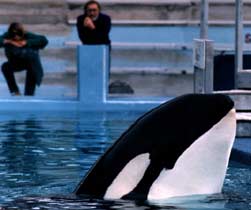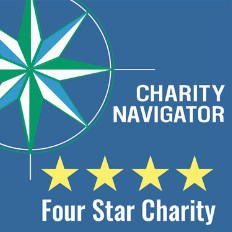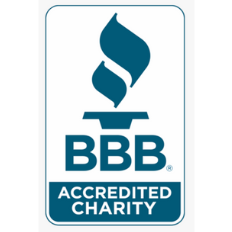Marine Parks
Orca Family Life
Orcas stay with their mothers for life. Each orca is a member of a pod: a family group comprised of a mother, her adult children, and her daughters' children. Each pod has its own dialect, which members use to communicate with one another and which they remember even after years in captivity.
Dolphin Family Life
Dolphins also swim in family pods, generally of three to ten animals. Females travel with their offspring while males form groups of two or three and remain with each other for years. Several dolphin pods sometimes swim together in tribes.
"If human civilization is going to invade the waters of the earth,
then let it be first of all to carry a message of respect." —Jacques Cousteau
The Capture Process
Dolphins are often captured when they swim to the bow of the capture boat to play. Other times, capture boats chase a pod to shallow waters. Nets are dropped over dolphins and they are lifted onboard. The dolphins that are thought to be unsuitable for display are thrown back into the water. Some die from shock or stress, others from pneumonia. Pregnant dolphins may spontaneously abort during this traumatic experience.
The Effect of Capture on the Pod
Capturing one wild dolphin or orca disrupts the entire pod. Pod members become panic-stricken after seeing their companion(s) captured. Some try to save them, following capture boats for miles. Even if family members are captured together and placed in the same park, one is likely to die soon after or be transferred to another park. Some marine mammals have been taken from their mothers when they were only 6 months old. Consequently, the social structure that normally exists will never come into being.
Marine Prisons
Marine parks are like prisons to marine mammals. While whales and dolphins travel constantly 35 to 100 miles each day marine park tanks are sometimes as small as 24 by 24 feet wide and 6 feet deep. Animals can swim only a few strokes before hitting a wall. Thus they are forced to swim in circles.
In the wild, marine mammals are perpetually stimulated by their environment. In captivity, they have only manufactured seaweed. They cannot engage in their natural behaviors nor interact with members of their social group, for it is virtually impossible for captive marine mammals to maintain a family unit. They cannot act on their basic instincts. As a result, many engage in stereotypic behaviors, becoming abnormally aggressive, bored, or depressed.
In the wild, dolphins use echolocation to navigate, bouncing sonar waves off of other objects. In tanks, these sonar waves bounce off the walls, driving some dolphins insane. In spite of this, marine parks oppose efforts to release captive marine mammals back into the wild.
Training
Trainers sometimes withhold food from dolphins and orcas in order to force them to learn and perform tricks. They may also isolate these highly social creatures. This treatment, combined with the stress of being taken from their families and housed with strangers, increases their levels of anxiety and aggression.
Injuries
- Dorsal fin collapse, also known as drooping fin syndrome, due to low water levels
- Skin peeling off as a result of over-chlorinated water
- Eye irritation caused by chlorine, copper sulfate, and other tank chemicals
- Stress-related injuries and deaths
Education
While marine parks claim that they are educating the public about marine mammals, they are actually presenting false information. Dolphins and orcas cannot behave as they naturally would in an environment as unnatural as a concrete tank. Deprived of the social structure that would normally guide their lives, their behavior is so influenced by stress that it is not an accurate representation of marine life. Thus children do not see the strong bonds between pod members or even the normal daily activities of the animals. Moreover, the message that those who watch these highly intelligent creatures perform tricks receive is that it is acceptable to exploit other living things in spite of the harm such exploitation brings.
Lifespan
While one might expect the absence of pollution and predators to prolong their lives, captive whales and dolphins have very high mortality rates. In the wild, dolphins live between 25 to 50 years, male orcas 30 to 60 years, and female orcas 50 to 90 years. Captive orcas usually die within the first 10 years of captivity, usually before they reach age 21. Most dolphins die within the first two years of captivity. Because death rates are so high (and captive breeding is generally unsuccessful), marine parks continue capturing animals from the wild.
Stress-related deaths are common. Some animals even commit suicide by crashing into the side of the tank repeatedly, therein shattering their skulls. Others are given anti-depressants so that the audience will not see their despair.
"Aquariums, particularly marine mammal circus acts, are bound to disappear as the public is educated and revolts against it."
—Jean-Michel Cousteau
U.S. Marine Parks That Display Orcas
|
SeaWorld San Diego 500 SeaWorld Drive |
SeaWorld Orlando 7007 Sea Harbor Drive |
|
SeaWorld San Antonio 10500 SeaWorld Drive |
Miami Seaquarium 4400 Rickenbacker Causeway |
"During my tenure at Marine World, I witnessed [Marine World personnel] hit animals so hard as to cause welts and bruises on them. . . . The animals became terrified of their handlers. They weren't properly trained and were just afraid of getting beaten," stated the sworn affidavit of Melissa Hindman, who was a seasonal keeper in the park during 1999 and 2000.
You Can Help:
- Ask marine parks and aquariums to stop capturing wild animals
- If you see a marine mammal being neglected or mistreated at a park, contact the United States Department of Agriculture
USDA Animal Care
4700 River Road, Unit 84
Riverdale, Maryland 20737-1234
(301) 734-4978
- Ask Congress to amend the Marine Mammal Protection Act to prohibit the capture of marine mammals from the wild for the purpose of public display. For your congresspersons contact information, visit http://www.votesmart.org/official_congress.php
- Lobby your elected officials to enact state legislation that prohibits the display of marine mammals
- Support legislation to protect marine mammals
- If you see a marine mammal being harassed in the wild, contact the National Marine Fisheries Service at (800) 853-1964
- Educate others about the cruelty of marine parks












